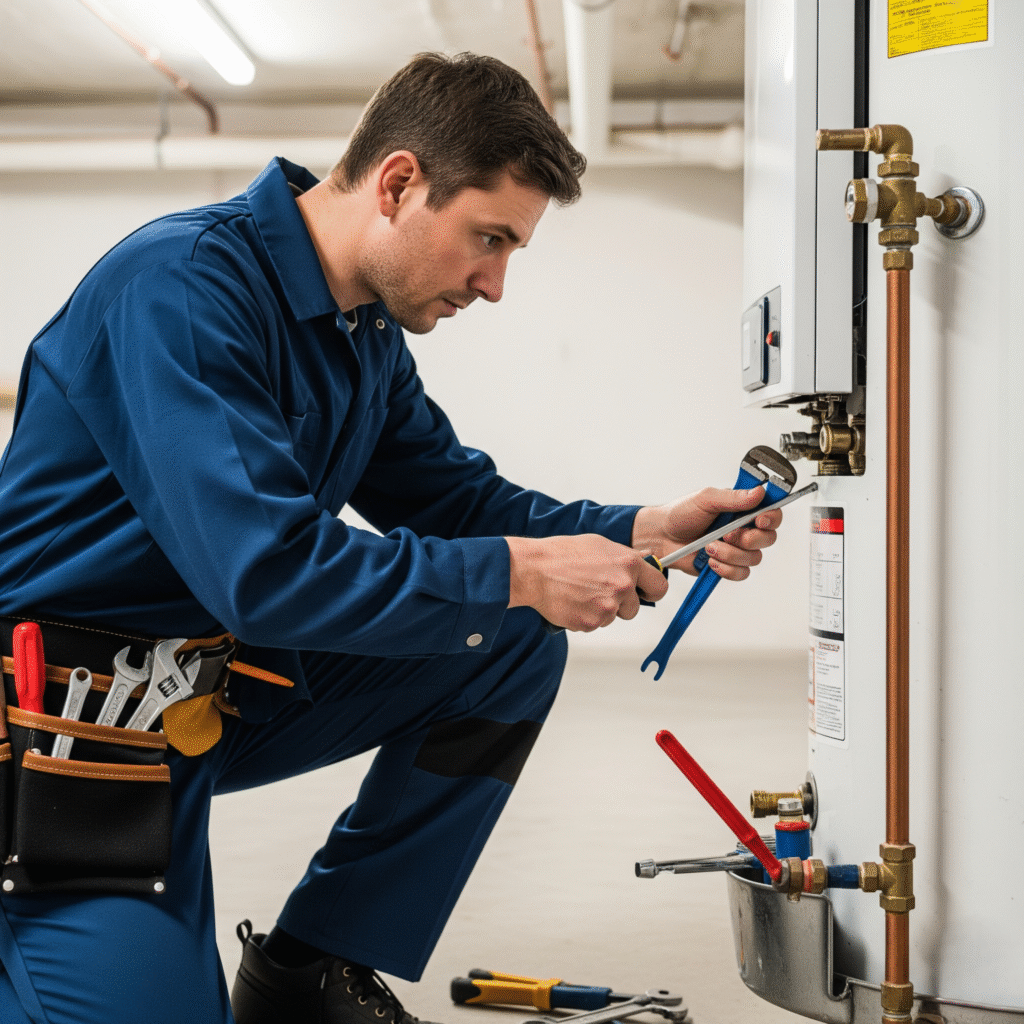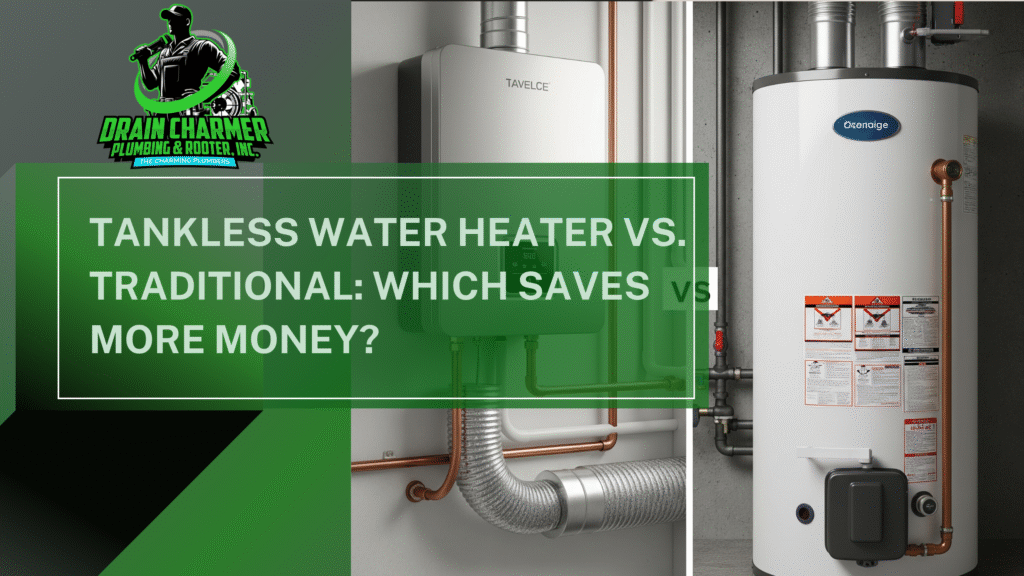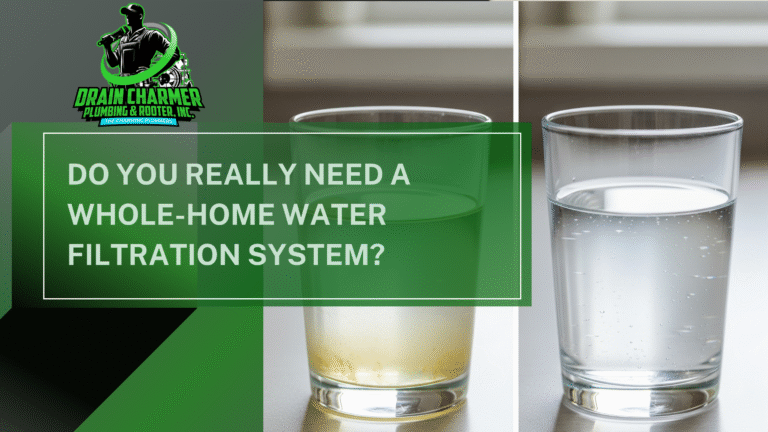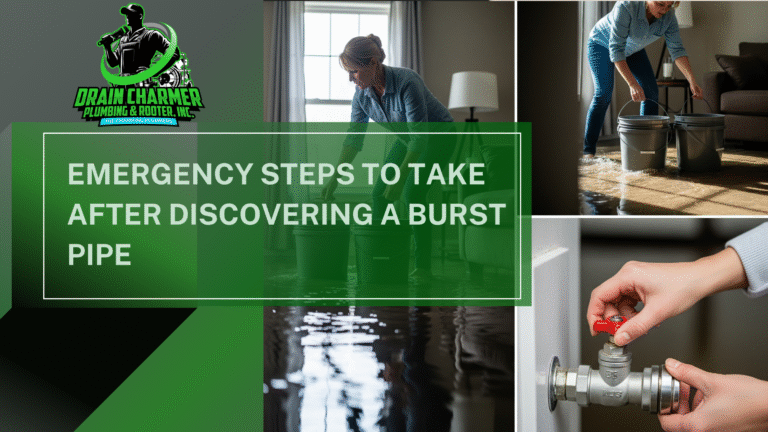Key Takeaways
- Tankless water heaters usually cost more upfront but can save on energy bills over time.
- Traditional water heaters are cheaper to buy and install, but often cost more to run.
- Your actual savings depend on household size, water usage, and local energy rates.
- Working with a professional plumber ensures you choose the best, most cost-effective option.
Introduction: Why Compare These Water Heaters?
When it comes to home plumbing upgrades, few choices affect your comfort and your wallet as much as your water heater.
With energy costs rising, homeowners and business owners alike often ask:
“Should I invest in a tankless water heater, or stick to a traditional tank system?”
Both systems provide hot water, but each works differently, and each has unique benefits and costs. Let’s break down the real numbers, so you can see which option truly saves more money in the long run.
Upfront Costs: What You’ll Pay on Day One
Traditional water heater:
- Lower initial price: typically $500–$1,500 installed.
- Simple technology; parts and installation are widely available.
Tankless water heater:
- Higher upfront investment: usually $1,500–$3,500 installed.
- May require upgrades like larger gas lines or electrical work.
While the sticker shock for tankless can feel steep, it’s only part of the story.
Energy Efficiency & Monthly Bills
The big promise of tankless systems is lower monthly energy use:
- They heat water only when you turn on the tap.
- Avoid “standby heat loss”, traditional tanks keep 40–50 gallons hot 24/7, even when you don’t use it.
U.S. Department of Energy data:
- Homes that use less than ~41 gallons daily: tankless units can be 24–34% more efficient.
- Larger households using more water: savings drop to 8–14%.
On average, homeowners report $100–$300 in annual savings, but actual savings vary by usage and energy prices.
Lifespan & Replacement Costs
Another place where tankless heaters shine is longevity:
- Tankless: ~20+ years with proper maintenance.
- Traditional: 8–12 years before replacement is needed.
Over 20–25 years, you might buy two traditional heaters, but likely only one tankless.
Real Lifetime Savings: An Example
Imagine this scenario over 20 years:
| Traditional Heater | Tankless Heater | |
|---|---|---|
| Upfront cost | $1,000 × 2 (need two units) = $2,000 | $2,500 (one unit) |
| Estimated energy savings | $0 | $2,000–$4,000 |
Total difference:
Tankless may save $2,000+ over its lifetime, plus extra space, longer lifespan, and endless hot water.
Maintenance & Repairs: What to Expect
Both systems need care:
- Traditional: Flush the tank yearly to remove sediment.
- Tankless: annual descaling (especially in hard water areas).
Tankless parts can be pricier, but fewer replacements may offset that over time.

Comfort & Convenience
- Tankless: endless hot water, compact size (frees up closet or garage space).
- Traditional: cheaper, simpler, and better for very high simultaneous use (e.g., showers + laundry + dishwasher).
For large families, a correctly sized tankless or multiple units may be needed.
When a Tankless System Makes Sense
- Smaller household or lower daily hot water use.
- Planning to stay in your home long-term.
- High local energy costs.
- Limited space for bulky equipment.
When to Choose Traditional
- Lower upfront budget.
- High simultaneous demand.
- Short-term property ownership (e.g., rental flip).
How to Save Money No Matter What You Choose
- Schedule annual maintenance to keep efficiency high.
- Insulate hot water pipes.
- Use low-flow fixtures to reduce demand.
- Adjust thermostat to 120°F (safe and efficient).
Final Thoughts & Expert Tip
There’s no one-size-fits-all answer. Tankless systems generally offer lower lifetime costs, but the best choice depends on your home’s layout, family size, and budget.
A licensed plumber can help calculate true lifetime savings based on:
- Your actual water usage
- Local installation costs
- Gas vs. electric availability
- Plans for your home or business
Need advice?
Call Drain Charmer Plumbing & Rooter Inc. or book a consultation online today.
Let’s help you save money and enjoy hot water that fits your life.




